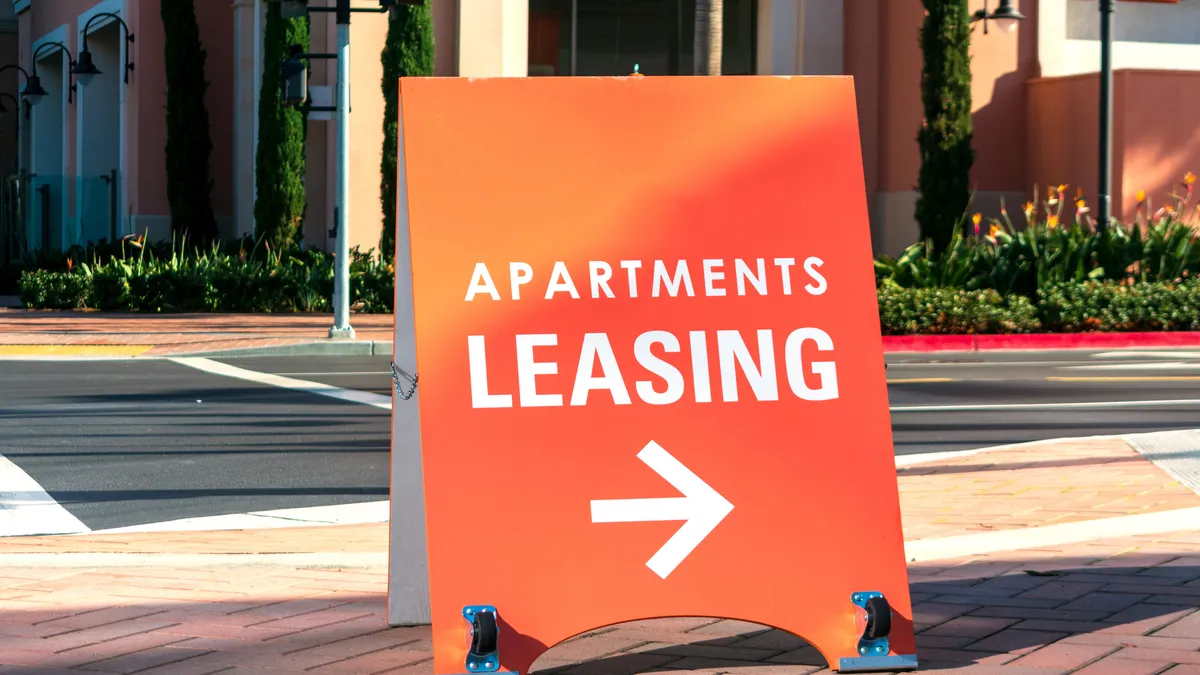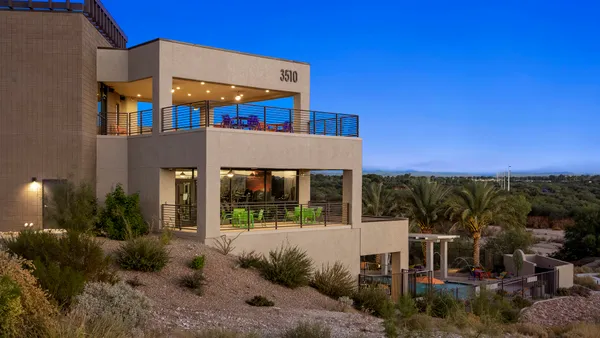Dive Brief:
- Members of Generation Z are expected to pay $145,000 in total rental costs on average — inclusive of rent, utilities and other costs — between the ages of 22 and 29, according to a study by RentCafe.
- On average, members of Gen Z — defined as people born between 1994 and 2000 — are expected to earn $550,000 during that same time frame. (Income levels vary widely by metro, topping $1 million in San Jose, California, and San Francisco.) The average rent cost makes up 27% of this number.
- While millennials — people born between 1981 and 1996 — paid 14% less in rent during the same period of their lives, they also earned $70,000 less — $480,000 on average.
Dive Insight:
Out of the 197 metros covered in RentCafe’s data set, only 40 require members of Gen Z to spend more than $150,000 in rent on average before age 30. Renting in San Jose demands the highest rent cost of $296,092 between the ages of 22 and 29, out of an average income of $1,249,722.
To make the transition to homeownership before age 30, both generations must shell out more in housing costs. In order to own a home over the same eight-year period of their lives, Gen Z must up their housing expenses to $165,000 on average, while millennials needed to pay $172,000. The ownership premium was higher for millennials — $45,636 on average, compared to $20,650 for Gen Z.
There are three metros where it costs less for Gen Z to own than to rent over eight years: Ann Arbor, Michigan, at a difference of -$21,379, followed by Bloomington, Indiana, at -$4,445 and Ocala, Florida, at -$3,424.
While over half of millennials are now homeowners, members of Gen Z are buying homes at a faster rate than the previous generation. Approximately one-quarter of households in this age group own their homes, according to RentCafe.
Connor Blakley, CEO and founder of Gen Z marketing firm Youth Logic, told Multifamily Dive that Gen Z is captivated by the value and entrepreneurial nature of real estate, which serves as a draw toward owning and away from renting.
“To combat this and truly attract Gen Z renters,” he said, “highlighting flexible options, mobility and community are paramount.”











